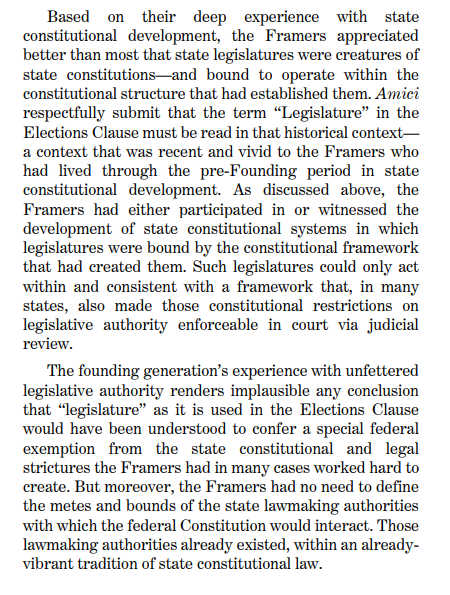
Third #ISLTamici Theme: The weight of authority is anti-ISLT
Let’s use history as an example.
Particularly after the Supreme Court’s rulings last term in Dobbs (on abortion rights) and Bruen (on gun control), history will play an important role in resolving this case.
Particularly after the Supreme Court’s rulings last term in Dobbs (on abortion rights) and Bruen (on gun control), history will play an important role in resolving this case.
The pro-ISLT side makes a lot of representations regarding the history. But none of these people are historians. And they rely heavily on a fake document to make their historical case (such as it is).
politico.com/news/magazine/…
politico.com/news/magazine/…
All the historians who have joined the case oppose the ISLT. And there are a lot of them. For example…
10 of the foremost scholars of founding-era America have told the Court that the ISLT is bunk. They write: 

So has Georgetown Law Dean Bill Treanor, a leading authority on judicial review in early America. He writes: 

There are many other briefs that flesh this analysis out even further. Too many to include here!
This is a bruising historical smackdown of the ISLT.
The same goes for the issue of the impacts that the ISLT will have on election administration.
Election officials are among the people who actually know how the ISLT will play out in practice. The election officials in the case—with one exception—all say the ISLT will be unmanageably damaging.
The one exception is Missouri’s Secretary of State John Ashcroft, who filed in support of neither party and basically just argued that the Elections Clause doesn’t apply here.
Again, just a complete smackdown of the ISLT.
The thread continues here with our fourth and final theme...
• • •
Missing some Tweet in this thread? You can try to
force a refresh









